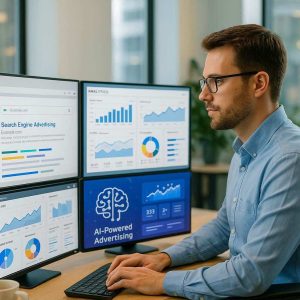 Technology has completely transformed the way businesses promote their products online. Before, ads relied heavily on manual placements and keyword bidding. Today, advanced tools and algorithms automate most of the process. Search engine advertising agents—whether independent professionals or part of a marketing firm—use powerful technologies to manage and optimize ad campaigns in real time.
Technology has completely transformed the way businesses promote their products online. Before, ads relied heavily on manual placements and keyword bidding. Today, advanced tools and algorithms automate most of the process. Search engine advertising agents—whether independent professionals or part of a marketing firm—use powerful technologies to manage and optimize ad campaigns in real time.
SEA agents (source: SEA agentur) rely on platforms like Google Ads and Microsoft Advertising, which use artificial intelligence (AI) and machine learning (ML) to target users with precision. Instead of guessing what people might search for, AI analyzes browsing patterns, device use, and behavior to display ads that match user intent. This technology not only improves conversions but also saves advertisers time and money.
How Technology Empowers Advertising Agents
Modern advertising agents depend on a mix of automation, analytics, and audience insights to deliver better results. Here are a few ways technology supports their work:
- Automated Bidding Systems – AI-driven bidding strategies automatically adjust bids based on competition, keyword relevance, and user behavior. This ensures advertisers get the best return on every click without constant manual tweaking.
- Advanced Targeting Tools – Agents can now segment audiences by age, interest, location, and even online activity. With this level of precision, businesses can reach users who are most likely to buy their products.
- Performance Analytics – Real-time dashboards show how each ad performs. Metrics like click-through rate (CTR), cost per click (CPC), and conversion rate help agents make data-driven decisions.
- Ad Personalization – Technology enables agents to create dynamic ads that automatically adapt based on the viewer’s preferences. For example, someone searching for “running shoes” may see a local sports store ad, while another person sees a discount offer from an e-commerce platform.
These advancements make search engine advertising more efficient, measurable, and personalized than ever before.
The Role of Artificial Intelligence and Machine Learning
AI and ML are now at the heart of digital advertising. Instead of relying solely on human judgment, agents use predictive models that learn from data over time. These systems can forecast which ads will perform best, recommend budget allocations, and even write ad copy variations.
Machine learning also improves keyword targeting. It identifies related search queries that might convert better, expanding ad reach while maintaining relevance. For example, a business advertising “home security systems” might also appear in searches for “smart home devices” or “wireless alarm kits.”
AI-powered tools like Google’s Performance Max campaigns go a step further by combining data across channels—Search, Display, YouTube, and Gmail—to identify where ads perform best. This helps agents deliver results with less manual effort, making campaign management more strategic and less repetitive.
Why Businesses Still Need Human Expertise
Even with all the technology available, advertising agents remain essential. Machines can analyze data, but they can’t fully understand brand tone, customer emotions, or creative storytelling. Human agents interpret the data and make strategic decisions that align with a company’s goals.
They know when to adjust budgets, test new ad formats, or refine messaging to connect better with audiences. Technology provides the tools, but agents provide the context. A skilled agent understands that what works for a tech startup may not fit a local bakery, even if both use the same ad platform.
In other words, the best results come from combining human insight with technological precision. The partnership between humans and AI ensures campaigns remain authentic while maximizing performance.


 Light has been used as a form of healing for centuries, from ancient sun therapies to modern clinical treatments. Red light therapy has recently stepped into the spotlight as one of the most researched and promising methods for supporting skin, muscle, and overall wellness. Among the newest innovations in this field is the Helios Bed, designed to deliver targeted red and near-infrared light in a safe, controlled environment. Its growing popularity has sparked curiosity: how does it work, and why is it making such an impact?
Light has been used as a form of healing for centuries, from ancient sun therapies to modern clinical treatments. Red light therapy has recently stepped into the spotlight as one of the most researched and promising methods for supporting skin, muscle, and overall wellness. Among the newest innovations in this field is the Helios Bed, designed to deliver targeted red and near-infrared light in a safe, controlled environment. Its growing popularity has sparked curiosity: how does it work, and why is it making such an impact?

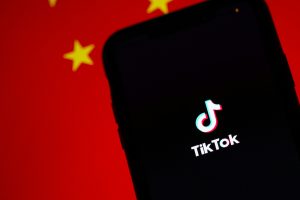
 In the future, cars will not only be able to drive themselves but also provide assistance when needed. This means that the car will be able to detect any potential dangers on the road and provide warnings.
In the future, cars will not only be able to drive themselves but also provide assistance when needed. This means that the car will be able to detect any potential dangers on the road and provide warnings. Due to the prolonged lockdown due to the COVID-19 pandemic, more and more companies and individuals are making new plans to work from home. Thanks to the rapid development of smart technology, setting up a home office has become much more manageable. You can use other tools and gadgets to be more productive and stay healthy while working away from the office. See these few lists of valuable appliances and devices for work-from-home setup.
Due to the prolonged lockdown due to the COVID-19 pandemic, more and more companies and individuals are making new plans to work from home. Thanks to the rapid development of smart technology, setting up a home office has become much more manageable. You can use other tools and gadgets to be more productive and stay healthy while working away from the office. See these few lists of valuable appliances and devices for work-from-home setup. 








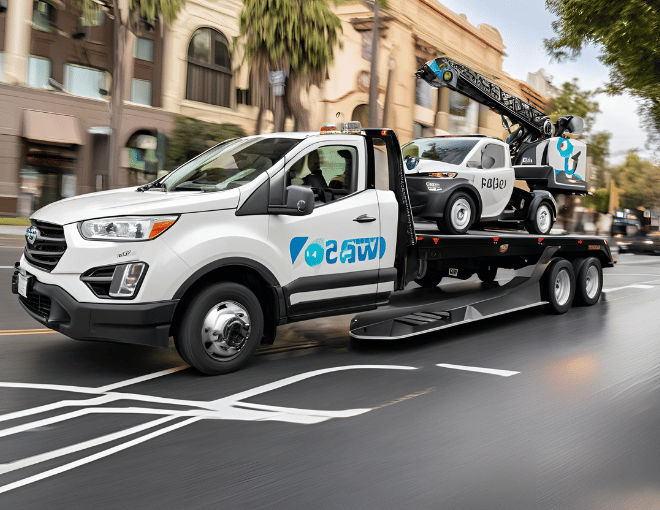






 Time really is a critical factor for many men.
Time really is a critical factor for many men. These wellness centers, many of which are featured on OPCMD, a directory and information hub for trusted OP sites, are offering guests the chance to unplug and unwind in innovative ways. Ironically, the very thing that overwhelms us—technology—is now being used to calm our minds, reset our nervous systems, and improve overall well-being.
These wellness centers, many of which are featured on OPCMD, a directory and information hub for trusted OP sites, are offering guests the chance to unplug and unwind in innovative ways. Ironically, the very thing that overwhelms us—technology—is now being used to calm our minds, reset our nervous systems, and improve overall well-being. Data leaks cost tech companies billions each year through stolen code, breached customer information, and compromised trade secrets. These leaks aren’t always the work of overseas hackers—often, the source is internal. Whether it’s a disgruntled employee or a simple oversight, the results can be devastating. That’s why startups and IT firms are turning to digital forensics investigators to detect and stop breaches before the damage spirals out of control.
Data leaks cost tech companies billions each year through stolen code, breached customer information, and compromised trade secrets. These leaks aren’t always the work of overseas hackers—often, the source is internal. Whether it’s a disgruntled employee or a simple oversight, the results can be devastating. That’s why startups and IT firms are turning to digital forensics investigators to detect and stop breaches before the damage spirals out of control.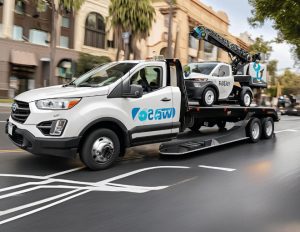


 A MOT check ensures that your vehicle is fit to be on the road.
A MOT check ensures that your vehicle is fit to be on the road.
 These detect the amount of water flowing while detecting the flow rate. Water leakage often occurs when the tap is off, and the water is running. A leak in the water supply pipeline can cause a sudden gush or constant dripping.
These detect the amount of water flowing while detecting the flow rate. Water leakage often occurs when the tap is off, and the water is running. A leak in the water supply pipeline can cause a sudden gush or constant dripping.
 Behavioral health professionals offer troubled adolescents with a teen mental health retreat in Washington State that conducts personalized mental health programs. Such programs are modelled after an evidence-based treatment called Dialectical Behaviour Therapy (DBT). It’s a therapy that teaches people to use new skills and apply strategies that can make them change their outlook in life.
Behavioral health professionals offer troubled adolescents with a teen mental health retreat in Washington State that conducts personalized mental health programs. Such programs are modelled after an evidence-based treatment called Dialectical Behaviour Therapy (DBT). It’s a therapy that teaches people to use new skills and apply strategies that can make them change their outlook in life. Mental health experts say that failure to address mental health issues of adolescents and teens could extend the problem into adulthood. The consequences of such failure will likely impair not only mental but also physical health when the affected teens reàch adulthood.
Mental health experts say that failure to address mental health issues of adolescents and teens could extend the problem into adulthood. The consequences of such failure will likely impair not only mental but also physical health when the affected teens reàch adulthood. In today’s rapidly advancing technological landscape, the concept of a smart home is no longer a futuristic dream but a reality. Among the various innovations that have emerged, a smart wall panel stands out as a game-changer in home automation. These panels not only add aesthetic appeal to your home but also offer a range of functionalities that can make your life more convenient and efficient.
In today’s rapidly advancing technological landscape, the concept of a smart home is no longer a futuristic dream but a reality. Among the various innovations that have emerged, a smart wall panel stands out as a game-changer in home automation. These panels not only add aesthetic appeal to your home but also offer a range of functionalities that can make your life more convenient and efficient.











 The benefits of customized jewelry are that it is special and does not have the same design as other people. Make sure customer knows what they want before they order a customized ring. The customer should be able to describe their preferences in detail, so the jeweler can create something that will suit them perfectly.
The benefits of customized jewelry are that it is special and does not have the same design as other people. Make sure customer knows what they want before they order a customized ring. The customer should be able to describe their preferences in detail, so the jeweler can create something that will suit them perfectly.

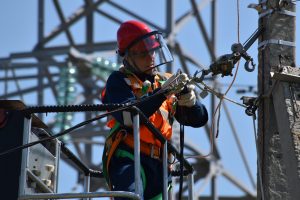 With these developments in urban living, electric companies along with professional electricians will have to learn new things and adapt to new technologies. Companies like Abacus, though a registered plumbing company, have launched a new set of electricians to help in the urbanization process in both plumbing and electrical works needed by every building.
With these developments in urban living, electric companies along with professional electricians will have to learn new things and adapt to new technologies. Companies like Abacus, though a registered plumbing company, have launched a new set of electricians to help in the urbanization process in both plumbing and electrical works needed by every building. The great news is that the government is providing low and middle income homeowners a zero-percent financing package to cover the underfloor heating installation costs. Moreover, since the main objective of the mandate is to eliminate the use of coal-fueled boilers, a subsidy of up to 30% of the cost of a heat pump is available to qualified cash-strapped homeowners.
The great news is that the government is providing low and middle income homeowners a zero-percent financing package to cover the underfloor heating installation costs. Moreover, since the main objective of the mandate is to eliminate the use of coal-fueled boilers, a subsidy of up to 30% of the cost of a heat pump is available to qualified cash-strapped homeowners. This is why the Dutch government specifically mandates hooking up the underfloor heating technology to a hybrid heat pump. Mainly because a hybrid heat pump alternately draws warm air between outside air and the boiler of the heat pump, whichever provides the most energy efficient and consistent warm temperatures in specific indoor spaces.
This is why the Dutch government specifically mandates hooking up the underfloor heating technology to a hybrid heat pump. Mainly because a hybrid heat pump alternately draws warm air between outside air and the boiler of the heat pump, whichever provides the most energy efficient and consistent warm temperatures in specific indoor spaces.
 The concept of software raises questions about why software has become the backbone of any business’s growth. In this digital era, software has become the soul of every organization in order to maintain agility, efficiency, and service and reduce ramifications. Software stores our documents, lets us talk to each other, keeps our data safe, and keeps client information safe.
The concept of software raises questions about why software has become the backbone of any business’s growth. In this digital era, software has become the soul of every organization in order to maintain agility, efficiency, and service and reduce ramifications. Software stores our documents, lets us talk to each other, keeps our data safe, and keeps client information safe.
